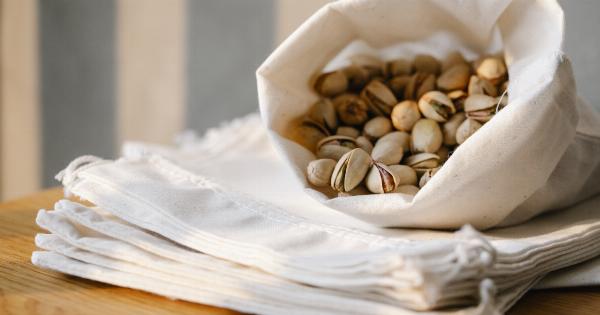Colon cancer, also known as colorectal cancer, is one of the most common forms of cancer in the United States. According to the American Cancer Society, there is a 1 in 24 chance of developing colon cancer in men and a 1 in 22 chance for women.
However, there are ways to prevent colon cancer, including adopting a healthy diet and lifestyle. One nutrient that has been shown to have a preventative effect on colon cancer is fiber.
What is Fiber?
Fiber is a type of carbohydrate that the body cannot digest. It passes through the digestive system largely intact and provides a range of health benefits. There are two types of dietary fiber, soluble and insoluble:.
- Soluble Fiber – This type of fiber dissolves in water to form a gel-like substance. It is found in fruits, vegetables, beans, and oats. Soluble fiber has been shown to decrease cholesterol levels and keep blood sugar levels stable.
- Insoluble Fiber – This type of fiber does not dissolve in water. Instead, it helps to move food through the digestive system and adds bulk to stools. Insoluble fiber is found in whole grains, nuts, and vegetables.
It is recommended that adults consume 25-30 grams of fiber per day, yet most people fall short of this goal. In fact, the average American only consumes around 15 grams of fiber per day.
How Does Fiber Help Prevent Colon Cancer?
Fiber is a crucial part of a healthy diet, and research has shown that it can help prevent colon cancer in a number of ways:.
- Increasing stool bulk – High-fiber foods help to add bulk to stools, which makes them easier to pass. This reduces the amount of time that waste spends in the colon, which can lower the risk of colon cancer.
- Reducing inflammation – Fiber has anti-inflammatory properties that can help to reduce inflammation in the colon. This can prevent damage to the cells in the colon that can lead to cancer.
- Balancing gut bacteria – Fiber feeds the healthy bacteria in the gut, which creates an environment that is less hospitable to harmful bacteria. This can have a protective effect against colon cancer.
- Binding to carcinogens – Certain types of fiber, such as lignin, can bind to carcinogens and remove them from the body. This can prevent these harmful substances from coming into contact with cells in the colon.
What are the Best Sources of Fiber?
Fiber can be found in a wide range of foods, but certain foods are particularly high in fiber. Some of the best sources of fiber include:.
- Whole Grains – Whole wheat, barley, quinoa, and brown rice are all high in fiber. Choose these grains instead of refined grains to increase your fiber intake.
- Fruits and Vegetables – Most fruits and vegetables are high in fiber. Some of the best sources include raspberries, pears, avocados, broccoli, and carrots.
- Beans and Legumes – Black beans, chickpeas, lentils, and peas are all excellent sources of fiber.
- Nuts and Seeds – Almonds, chia seeds, and flaxseeds are all high in fiber. Just be sure to watch your portion sizes, as nuts and seeds are also high in calories.
Incorporating these foods into your diet can help you meet your daily fiber needs and promote colon health.
Additional Tips for Preventing Colon Cancer
In addition to eating a high-fiber diet, there are other steps you can take to prevent colon cancer:.
- Get Screened – Regular colonoscopies can help to detect and remove polyps before they become cancerous. The American Cancer Society recommends that adults begin getting screened for colon cancer at age 45.
- Exercise Regularly – Regular exercise can reduce your risk of colon cancer by as much as 25%. Aim to get at least 150 minutes of moderate-intensity exercise per week.
- Avoid Certain Foods – Processed foods, red meat, and alcohol have all been linked to an increased risk of colon cancer. Limit your intake of these foods.
The Bottom Line
Colon cancer is a common and potentially deadly disease, but it is also largely preventable through diet and lifestyle changes. One of the most important steps you can take to prevent colon cancer is to eat a diet that is high in fiber.
Not only does fiber help to prevent colon cancer, but it can also have a range of other health benefits. By making simple changes to your diet and lifestyle, you can significantly reduce your risk of colon cancer and improve your overall health and well-being.




























